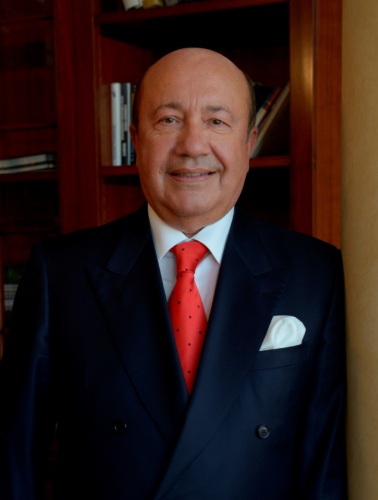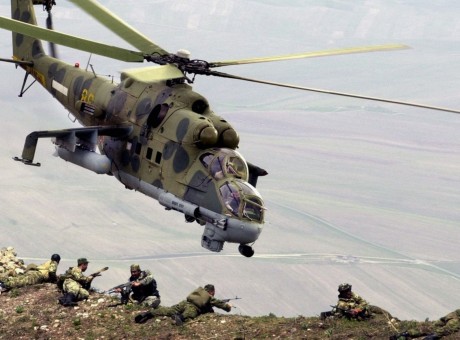
Igor S. Ivanov
Former Minister of Foreign Affairs, Russia
A Pan-European Task Force on Cooperation in Greater Europe, including former foreign and defence ministers from Russia, Turkey, the UK, Poland, Ukraine, and France has expressed its concern over the danger that the Syrian crisis could develop into an interstate conflict.
In its paper ‘Countering the Threats from the Middle East’, the Task Force, coordinated by the European Leadership Network and partially funded by NTI, points out that the Syria conflict has become a proxy war with multiple actors and differing objectives. As such, there is a danger that an accident, military incident or an unauthorised action could spark a direct military confrontation between the external states involved (including Russia, the United States, Iran, Saudi Arabia, Turkey and the UK) in the absence of effective communication channels.
The group calls on all states involved to avoid any actions that may be misinterpreted as a direct attack on other state’s forces, operating in the vicinity of Syria and inside the country (air forces, special forces, advisors, etc.). In particular, they appeal for the lessening of tensions between Turkey and Russia and urge the political leadership in both countries to work towards reconciliation.
In its paper, the Task Force brings forward three recommendations:
1. Avoiding an inter-state conflict over Syria.
With the danger that a proxy war in Syria can turn into a direct interstate conflict, the paper calls on all states involved to proceed with the utmost caution and avoid any actions that may be misinterpreted as a direct attack on other state’s forces operating in the vicinity of Syria and inside the country (air forces, special forces, advisors, etc.). In case of any incidents, there should be direct contact between the leaders, bureaucracies and the militaries to avoid further escalation.
2. Re-focusing on fighting ISIS and preventing its re-emergence.
The group argue that it would be a grave mistake to lessen the pressure on ISIS as all states in Europe continue to remain exposed to the threat of terrorism, flow of radicalism, and activities of terrorist recruiters. They call for an effective joint strategy addressing all dimensions of ISIS activity: supporting regional allies in rolling back ISIS territorial gains, defeating its terrorist network worldwide, and countering the ideology and propaganda of ISIS.
3. Bringing the Syrian conflict to a close.
The Task Force members support the efforts to maintain a cessation of hostilities, but they are deeply concerned about the possibility that the current ceasefire may collapse and open warfare would resume. They suggest that stability can be reached only through realistic political arrangement, not shaky ceasefires and call for setting realistic parameters for a new constitutional settlement in Syria. This would include the prolongation of the existence of important elements of the current government and state apparatus, as well as a viable power-sharing arrangement with the moderate opposition, respect for minority rights, and guarantees of security and non-persecution for the combatants (except those responsible for terrorism and war crimes).
For a number of states, the prospect of Assad staying in power beyond the end of the transition process remains a red line. The paper suggests that those interested in his departure should propose that the Syrian President pledge his resignation from office and ‘voluntary’ withdrawal from political life at a specific point of the transition.
The Task Force stands in stark opposition to the fragmented and often adversarial international approach to the conflicts of the Middle East. In spite of their political differences, the high-level signatories agree on the need to re-invest in multilateral diplomacy to tackle the Middle Eastern crisis.
Signatories to the paper are:
The Task Force is supported by independent research from a consortium of think-tanks: the European Leadership Network (ELN) in London; the Russian International Affairs Council (RIAC) in Moscow; the Polish Institute of International Affairs (PISM) in Warsaw and the International Strategic Research Organisation (USAK) in Ankara.
Sign up for our newsletter to get the latest on nuclear and biological threats.
